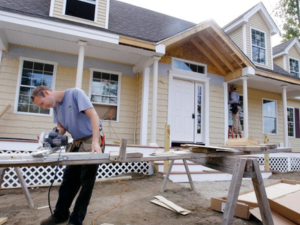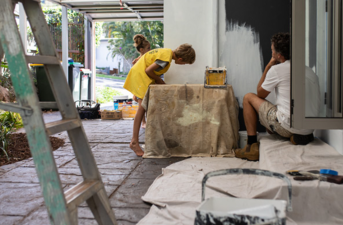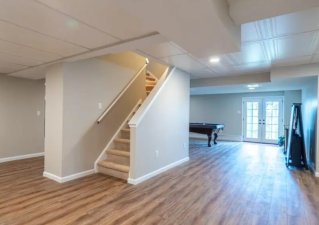The Most Common Home Repair Mistakes to Avoid
Renovation is a major undertaking for every family, but many people often make common mistakes during the renovation process, leading to future inconveniences and even requiring rework.
Renovation is a major undertaking for every family, but many people often make common mistakes during the renovation process, leading to future inconveniences and even requiring rework.
- Plumbing and electrical renovations should not be neglected:
Plumbing and electrical renovations are the most critical and hidden tasks in a renovation. Once problems arise, the subsequent repair costs are extremely high. Many homeowners, in an effort to save money, choose cheap materials or unprofessional construction teams, which can lead to hidden dangers. Problems such as leaking pipes and short circuits can be life-threatening at best, or even safety-threatening at worst. It is recommended to choose reputable brands of plumbing and electrical wiring and hire professional contractors for installation. Post-completion pressure testing and electrical inspections are essential.

- Inadequate storage space planning:
Many people focus solely on aesthetics when renovating, neglecting storage functionality, leaving them with nowhere to put their belongings after moving in. It is recommended to plan storage space before renovations, such as custom-designed floor-to-ceiling wardrobes or utilizing wall storage cabinets. Especially for smaller apartments, it is important to prioritize the use of three-dimensional space to prevent clutter from overcrowding and affecting aesthetics.
- Ignoring waterproofing:
Waterproofing bathrooms, kitchens, and balconies is crucial. To save money, some homeowners only waterproof the bathroom, or the waterproofing layer isn't high enough, leading to mold on the walls and bulging floors. The correct approach is waterproof bathroom walls to a height of at least 1.8 meters. Kitchens and balconies should also be waterproofed, and a water-tightness test should be performed after completion.
- Choosing low-quality materials for cheap prices:
Decoration materials directly impact living quality and health. To save money, some homeowners choose cheap panels and paints, which can result in excessive formaldehyde levels and harm their family's health. It's recommended to choose environmentally friendly materials within your budget, such as E0-grade panels and water-based paints, especially for children's and elderly rooms.
- Improper socket layout:
Insufficient or poorly positioned sockets are a common problem for many families. Before renovating, plan your sockets based on the furniture placement. For example, leave sockets on both sides of the sofa, multiple switched sockets on the kitchen countertop, and splash-proof sockets in the bathroom. Also, consider future smart home needs and reserve a sufficient number of spare sockets. Ignoring soundproofing:
Many people neglect soundproofing during renovations, only to find that footsteps from upstairs and sewer noises seriously disrupt their lives after moving in. It's recommended to implement soundproofing measures after renovations are complete, such as wrapping sewer pipes with soundproofing pads, soundproofing walls, and choosing soundproof glass for windows. This is especially important for houses facing the street.
- Recklessly demolishing load-bearing walls:
Some people demolish walls to expand space, but accidentally demolishing load-bearing walls can seriously compromise the structural safety of the house. Before renovations, be sure to check the original building plans to identify load-bearing walls and ensure they remain intact. If any wall modifications are necessary, consult a professional.

- Simple lighting design:
Many homes only install a single main light, resulting in insufficient or uneven lighting. A sound lighting design should include basic, accent, and decorative lighting. For example, a main light in the living room can be paired with spotlights and floor lamps, kitchen countertops can be equipped with light strips, and bedroom bedside lamps should have wall or table lamps.
- Ignoring ongoing maintenance:
Renovation isn't a one-time effort; many materials require regular maintenance. For example, solid wood floors should be waxed regularly, tile grouting should be cleaned and glued regularly, and hardware should be checked regularly for looseness. It's recommended to understand the maintenance methods for various materials during renovation to avoid future problems.
- Insufficient ventilation time:
It's common for many people to rush into their homes after renovations. Even if environmentally friendly materials are used, sufficient ventilation is still necessary. It's generally recommended to ventilate the home for at least three months, especially during hot summer weather, which promotes formaldehyde volatilization. It's also best to conduct a formaldehyde test before moving in to ensure that air quality meets standards.


